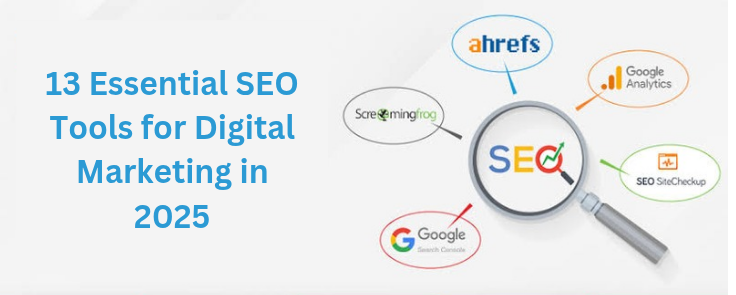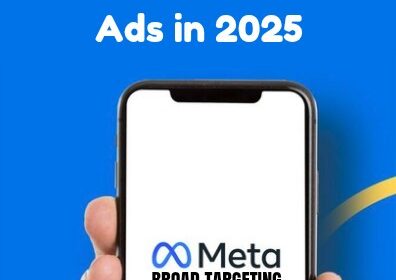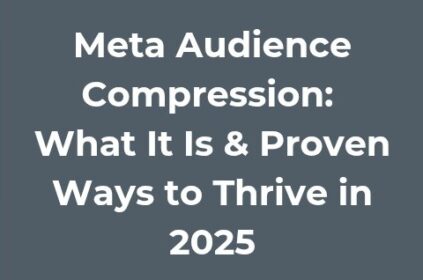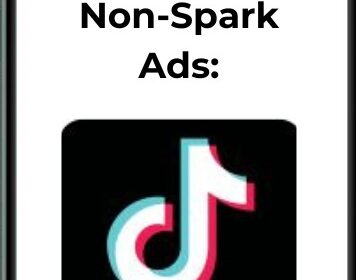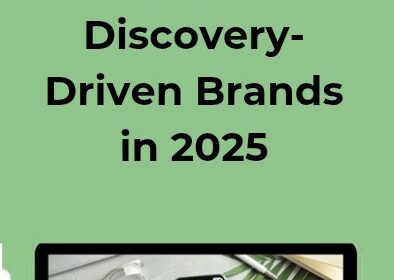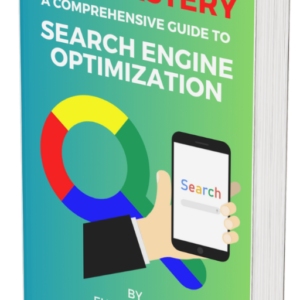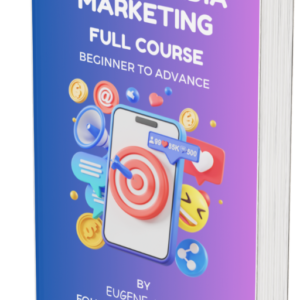Organic search keeps driving a majority of measurable site traffic, and competition for positions tightens every quarter.
Because brands that systemise tasks outperform those that guess, the right SEO tools for digital marketing in 2025 become a cost-effective edge rather than a discretionary purchase.
With that in mind, in this article, we explain why software budgets keep rising, outline the criteria you should apply before subscribing, and review 13 platforms that already lead performance.
Why SEO Tools for Digital Marketing in 2025 Remain Critical
The channel’s relevance is confirmed by research showing organic search now delivers 53 % of all trackable website visits—more than every paid and social source combined.
[BrightEdge research] provides the metric and underlines a structural truth: users still start journeys with a query, and algorithms still reward pages that demonstrate authority, relevance, and technical integrity.
Meanwhile, the global SEO software market is valued at USD 74.6 billion in 2024 and is forecast to more than double by 2030, expanding at a 13.5% compound rate.
These numbers, published by Grand View Research, signal continued investment into automation, artificial-intelligence scoring, and real-time SERP monitoring.
Because budgets follow return, a practical SEO plan for 2025 starts with clear objectives—technical hygiene, topical depth, and high-speed measurement—then maps each requirement to specialised software.
The absence of accurate rank tracking or broken-link detection no longer feels like a minor gap; it erodes market share while rivals deploy data-driven tactics.
Thus, decision-makers adopt SEO tools for digital marketing in 2025 to shorten feedback cycles, justify spending, and protect visibility against algorithm volatility.
Methodology for Selecting SEO Tools for Digital Marketing in 2025
Choosing software on brand recognition alone results in overlapping features and unnecessary fees, so this evaluation applies four measurable filters.
First, data coverage: index size, crawl limits, and update frequency determine how precise your insights will be.
Second, usability: teams that can access dashboards quickly iterate campaigns faster than those trapped in layered menus.
Third, integration: the tool must export clean data to analytics suites, BI warehouses, or reporting templates without manual work.
Fourth, cost efficiency: subscription tiers should align with current traffic targets, not aspirational figures that inflate overhead.
These criteria answer common queries by offering a reproducible framework rather than a personal opinion.
They also account for small-team realities—time, learning curves, and budget ceilings—because the best free or low-tier plans still provide genuine value when matched to a precise objective.
Consequently, each pick below satisfies at least three of these four benchmarks, ensuring relevance across agency, SaaS, and in-house contexts.
Moreover, every summary highlights how the platform tackles on-page analysis, link evaluation, or keyword clustering, so you can verify alignment with your own SEO tools for digital marketing in 2025 roadmap.
13 Essential SEO Tools for Digital Marketing in 2025
#1. Semrush
Semrush combines keyword research, competitive gap analysis, site audits, and PPC data. The company reports 1.166 million active users as of December 2024, reflecting sustained trust across industries.
The Keyword Magic tool surfaces intent clusters for quick content briefs, while Position Tracking monitors daily movements across locations and devices.
For advertisers balancing paid and organic channels, the Advertising Toolkit maps competitor spend to ad copy, assisting budget allocation.
These integrated modules make Semrush a core component of many SEO tools for digital marketing in 2025 stacks.
#2. Ahrefs
Ahrefs houses the web’s largest live backlink index, refreshed every 15–30 minutes. Site Explorer diagnoses toxic links, and Keywords Explorer delivers click-stream-validated volume data across 243 countries.
The introduction of AI-generated SERP overviews speeds topical research by summarising competitive pages, while the Content Gap report highlights missing subtopics.
Therefore, Ahrefs remains indispensable to professionals comparing SEO tools for digital marketing in 2025 for link acquisition and content planning.
#3. Google Search Console
As a direct line to Google’s search index, Search Console supplies performance metrics—impressions, clicks, CTR—and technical alerts unavailable elsewhere.
URL Inspection exposes canonical issues, while the Page Experience report tracks Core Web Vitals.
Because the platform is free, it serves as the baseline reference when validating data from paid SEO tools for digital marketing in 2025. Export APIs allow daily pulls into Looker Studio, maintaining single-source accuracy.
#4. Google Analytics 4
GA4 correlates organic sessions with on-site behaviour such as scroll depth, purchase events, or video plays.
By pairing GA4 event streams with Search Console queries, growth teams measure the revenue impact of each keyword.
The platform’s server-side tagging improves durability against cookie loss, important when forecasting results in 2025’s privacy climate.
Consequently, GA4 underpins attribution models that justify spend on specialised SEO tools for digital marketing in 2025.
#5. Screaming Frog SEO Spider
Screaming Frog performs high-speed desktop crawls, surfacing duplicate content, orphan pages, and improperly nested headings.
Exported CSV files integrate with Data Studio for trend visualisation. Because licensing costs are modest and the free tier audits up to 500 URLs, the spider sits in most lists of cost-effective SEO tools for digital marketing in 2025.
Enterprises scale output by running multiple instances on virtual machines and merging reports programmatically.
#6. Surfer SEO
Surfer analyses top-ranking pages for a given query, then generates a real-time content score aligned with word count, partial match frequency, and heading density.
The Grow Flow feature automates next-step tasks such as internal-link recommendations every seven days.
These data-led briefs accelerate production schedules, making Surfer a favoured on-page optimiser within modern SEO tools for digital marketing in 2025 arsenals.
#7. Moz Pro
Moz Pro’s proprietary metric, Domain Authority, simplifies prospecting by ranking link value on a 0–100 scale.
Link Explorer visualises inbound growth over time, and MozBar overlays metrics within SERPs, condensing research steps.
For teams that need an intuitive interface, Moz Pro supplies accessible but rigorous functionality, complementing other SEO tools for digital marketing in 2025 that specialise in technical depth.
#8. SE Ranking
SE Ranking offers accurate rank tracking down to ZIP-code level, plus white-label reporting for agencies.
The On-Page Checker analyses more than 60 factors, from metadata length to page speed, producing actionable tasks.
Competitive Research now includes PPC data, supporting holistic acquisition strategies. These features place SE Ranking firmly among budget-friendly SEO tools for digital marketing in 2025 for local businesses and freelancers.
#9. AnswerThePublic
AnswerThePublic mines autosuggest data to visualise long-tail questions, synonyms, and comparisons people type into Google. Marketers integrate exports into editorial calendars to address informational gaps.
Because topical authority is a ranking pillar, this question-level insight adds depth that broader keyword tools may miss. As such, AnswerThePublic is a lightweight but potent member of the SEO tools for digital marketing in 2025 toolkit.
#10. Keyword Insights
Keyword Insights clusters thousands of terms into logical groups using natural-language processing, then suggests whether to create new pages or merge keywords under one URL.
The content brief generator includes headings and questions, cutting outline time by hours. For sites fighting cannibalisation, Keyword Insights provides clarity, demonstrating its value among advanced SEO tools for digital marketing in 2025.
#11. ContentKing
ContentKing monitors websites 24/7 and alerts teams instantly when meta robots tags change or pages drop from XML sitemaps. Real-time auditing prevents unintended SEO regressions, especially after deployments.
Because speed of response mitigates traffic loss, many enterprise stacks now treat ContentKing as mission-critical within their roster of SEO tools for digital marketing in 2025.
#12. Rank Math
Rank Math extends WordPress with schema markup, XML sitemap control, and on-page scoring.
The recent Content AI module provides keyword suggestions directly inside the editor, syncing with cloud-processed models.
For sites already on WordPress, Rank Math functions as both an optimisation layer and a bridge to deeper SEO tools for digital marketing in 2025.
#13. Siteliner
Siteliner scans up to 25 000 URLs per site and highlights duplicate content percentages, broken links, and average page size.
The metric-rich export helps prioritise technical clean-ups that improve crawl budget. Its free tier covers 250 URLs, making Siteliner a practical add-on for audits without raising software bills.
Consequently, even lean teams include it when assembling essential SEO tools for digital marketing in 2025.
Building an Integrated Workflow with SEO Tools for Digital Marketing in 2025
Owning multiple subscriptions solves nothing unless data moves seamlessly between them, so integration strategy ranks equal to feature choice.
Begin with a data warehouse such as BigQuery, Snowflake, or Redshift. Connect Google Search Console through scheduled extracts, push Semrush or Ahrefs exports via API, and feed GA4 events through native connectors.
Once normalised, dashboards in Looker Studio or Power BI surface macro trends: keyword groups driving assisted conversions, link-building ROI, and technical debt affecting specific templates.
Because privacy rules shrink attribution windows, server-side tracking now replaces pixel-only setups. GA4 Measurement Protocol and Meta Conversions API hash user identifiers before transport.
The same logic applies when feeding conversion events back to advertising platforms. A closed-loop system keeps bid algorithms honest, ensuring revenue signals reflect real outcomes.
This workflow design explains why integration questions dominate implementation discussions around SEO tools for digital marketing in 2025.
Conclusion
Success in search will lean on disciplined execution rather than luck. By selecting platforms that align with technical requirements, data coverage, and user workflows, teams reduce blind spots and double handling.
Start with free cornerstones—Google Search Console and GA4—then layer paid utilities that solve distinct gaps: link analysis, content scoring, or continuous audits.
Validate each subscription against measurable gains such as crawl-error reduction or ranking lifts.
Because market analysis indicates continued growth in both software spend and organic traffic share, investment in robust SEO tools for digital marketing in 2025 remains a high-leverage decision for any organisation that relies on search-driven revenue.

